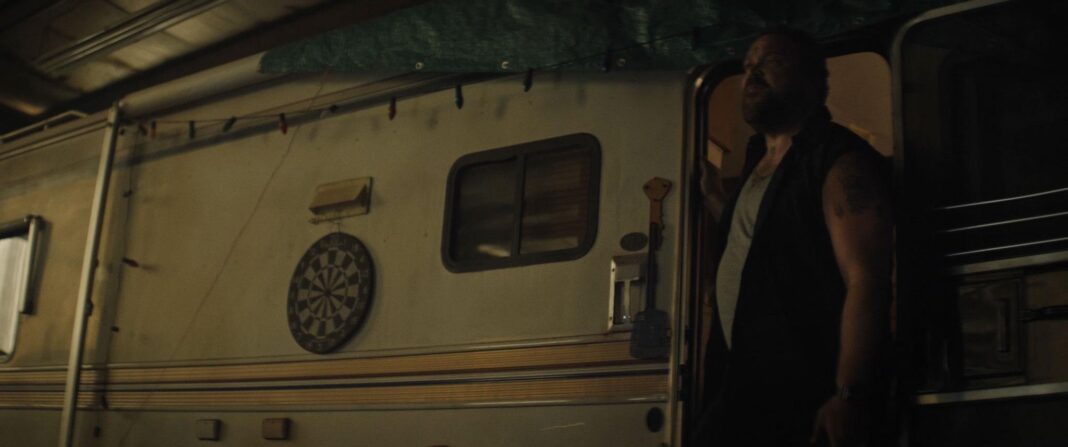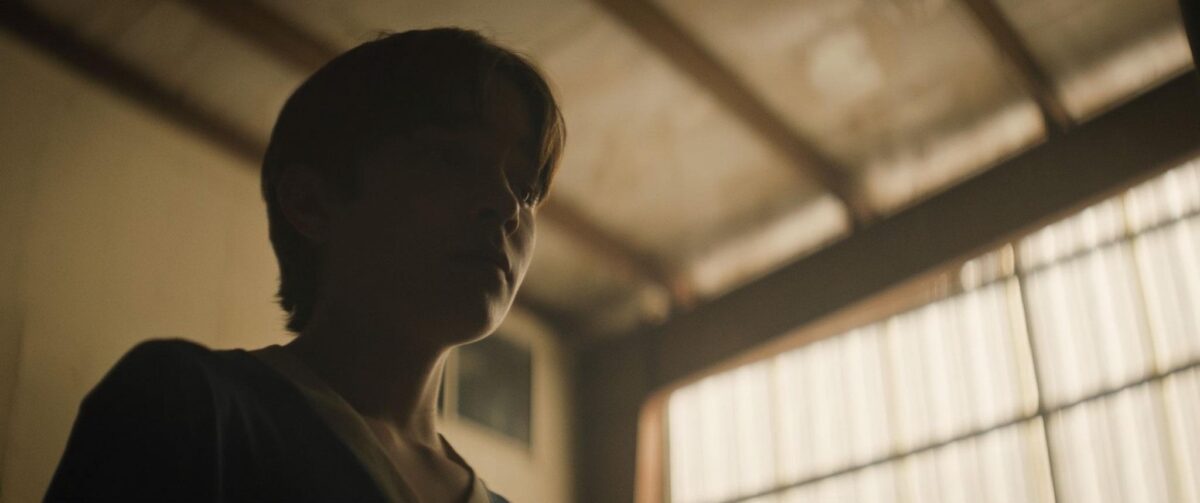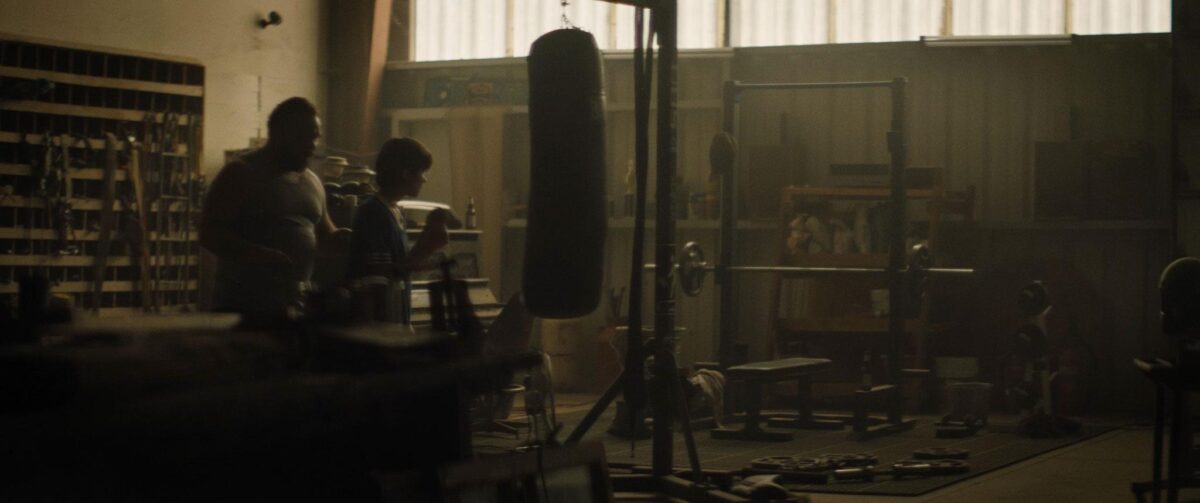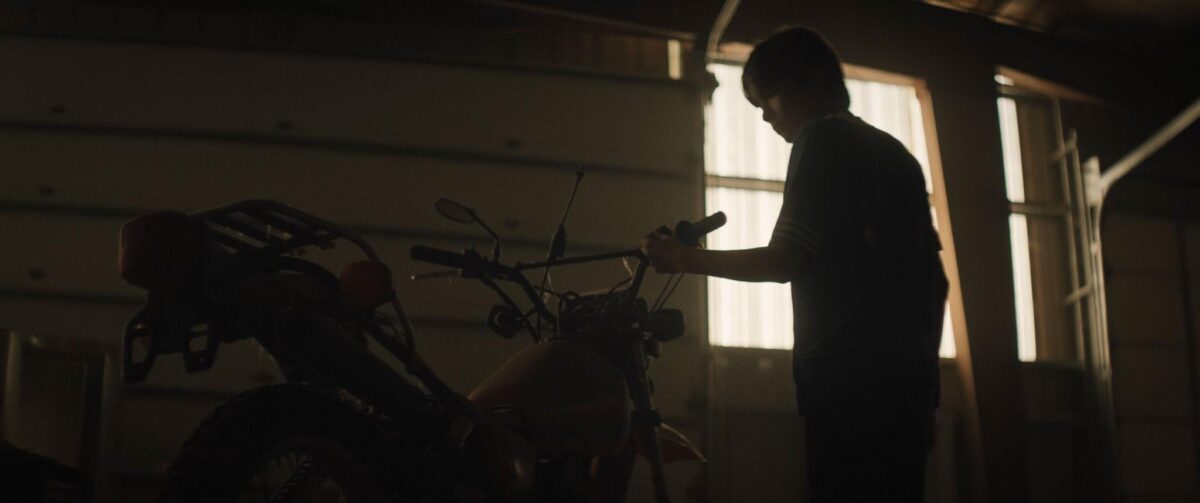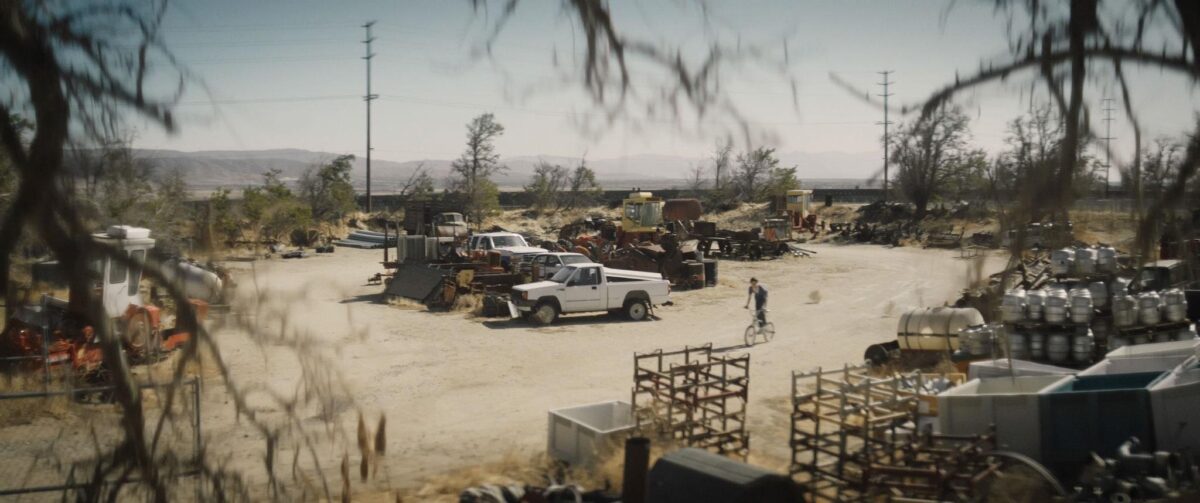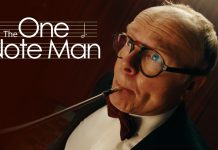Ben Tricklebank explores the theme of toxic masculinity within the context of a father-son relationship in his new short CHAMP.
Film And TV Now interviewed the director about the short.
FILM AND TV NOW: These days the issue of masculinity overall has come into question because of what has been defined in the media. Where do you feel the key problems have emerged?
BEN TRICKLEBANK: It’s a problem that goes back a long way. There seems to have always been societal pressures of how men (and women) should act.
It’s so ingrained in our culture that it’s hard to point at where exactly the problems have emerged. It’s deeply rooted in how we’re raised to identify ourselves. The notion of what it takes to be a “real man”, the macho bullshit that forces kids to act a certain way. It’s everywhere you look.
FTVN: The film reflects on one core element of a father-son relationship. What was the start-off point for the script?
BT: The original story was written by James Gould-Bourn and was called A Young Man’s Game.
The story was very much the same but took place almost entirely in a parked car next to a football (soccer) pitch. James wrote the script while has was also working on his debut novel Keeping Mum (which is also about a father and son but not connected).
After James and I met and started working together, the script evolved over time. It eventually became Champ after production (COVID) delays forced us to rethink our approach and move the story from England to the US.
FTVN: Tell us about your cast.
BT: I feel very fortunate to have worked with such a wonderful cast.
Drew and Kingston bought Danny and Jake to life with such depth, they really made my job easy. Sometimes things just click and this was definitely one of those situations. Drew has this perfect ability to make you feel like he’d give you a big hug one minute, and rip your head off the next.
It’s quite a skill. And Kingston bought so much more than I could have hoped to his performance. Jake has far less dialogue in the script but it was always about what he could say without words that would make or break the film and Kingston nailed it.
FTVN: Tell us about your production team.
BT: i met Annika Dawson (producer) through a mutual friend and thankfully she really connected with the script. Annika’s produced a number of short films, whereas my background is more in commercials. There’s quite a different mindset required for producing shorts and Annika bought all that knowledge and experience as well as a trusted creative voice and unflappable personality.
I met our DP, Oren Soffer a few years previously but had never found the right project to collaborate on. Soon as we shifted production from the UK to the US I thought he’d be perfect for the project.
Tim Moen, our production designer is a good friend that I have worked with on commercials. To be honest I was (pleasantly) surprised when he agreed to take it on as he’s always busy. His team had so much fun with the sets and all the little details that bring the characters to life it really shows on screen.
I didn’t meet David Chapdelaine (composer) until we were well into the edit. I was talking with a mutual friend about the project and he mentioned this talented musician hat had not long moved to LA and was looking to collaborate and meet new people. We talked once and I just had a feeling it was the right fit. We connected immediately over references and I think he started scoring the first track a few days later.
Doobie White (editor) and I have worked together on and off for about 7 or 8 years but this was the first time we cut a narrative piece together. He’s crazy talented and put so much time and energy into the film. He loves to craft sound design as he cuts which helps shape the film in so many ways.
Those are just a few of the key players but really everyone involved bought they’re all to the project. I guess after the setbacks we had some credit in the good fortune department.
FTVN: Where did you shoot and for how long?
BT: We shot for 3 days in Los Angeles, California.
I really wanted to shoot the script in chronological order so we’d feel the relationship between Jake and Danny develop naturally. We started out in Lancaster, on the edge of the Mojave Desert, north east of downtown LA.
We then shot one day in Agua Dulce, a small town in the Sierra Pelona mountains, halfway back towards the city. The final day was in the industrial area of Van Nuys in the San Fernando Valley.
FTVN: How did you raise finance for the short?
BT: The screenplay won the 2019 Shore Scripts Short Film Fund which gave us a good starting point as well as camera gear from Arri.
I was able to raise some more money from the commercial production companies that rep me internationally (Radke in Canada and Tempomedia in Germany). The remaining investment was from Furlined (my commercial production company in the US) and my own pocket. The team at Therapy Studios in LA, who I’ve been working with for a number of years, generously provided Post production services.
FTVN: Would you like to expand on the themes in this short into a feature subject?
BT: Yes, James and I are in the process of developing a feature length script that builds on the characters and themes in Champ. The short was not originally conceived as a proof of concept, but as the story evolved it felt more and more like a longer story needed to be told.
FTVN: What issues and themes are you keen to explore in your future work?
BT: I want to make work that entertains and also makes people think. I gravitate towards stories that reveal the floors in who we are as people and questions the social constructs we create.
I love films that can change your awareness of a subject and still tell an engaging story. I have one project in development that explores the themes of loneliness and connection and another which builds on the theme of toxic masculinity explored in Champ.
I’m also fascinated by technology and the way it can simultaneously help and hurt us in so many ways.
FTVN: Who are your key cinematic influences?
BT: That’s a really tough question because there are so many… Stanley Kubrick, Martin Scorcese, Francis Ford Coppola, Ridley Scott, Steven Spielberg, Christopher Nolan, Alejandro Iñárritu, Alfonso Cuarón, Denis Villeneuve, Quentin Tarantino, Wes Anderson… to name a few.
FTVN: You have a wide range of film-making disciplines. What fascinates you about the process overall?
BT: The craft of bringing characters and a stories to life through images. I love the way all the different aspects of the craft come together and help guide and shape each other.
I have a wide range of disciplines because I took the scenic route to directing. I don’t have a formal education in film, I learnt through experience. Music and recording led me to design and photography which led me to interactivity and motion, which ultimately led me to film.
I think that’s why I love it so much. I get to pull all those things together in one place.
FTVN: What are the plans for the short in terms of festivals and screenings at present?
BT: The film premiered in LA as part of qualifying for the 2022 Academy Awards. We’re also working with the team at Festival Formula for film festival strategy and submissions. To date we’ve submitted to about 15 including Flickerfest, Sundance and SXSW. Announcements start early December. Fingers crossed.
FTVN: How has the global challenge of the last year and a half affected your development and evolution as a film-maker?
BT: It gave me a lot of time to think about what I want to achieve in life and where to focus my attention.
I was 2 days from starting to film the original version of this film in the UK at the end of March 2020. The whole team was trying desperately to keep production on track amongst the confusion and uncertainty of what was happening.
Initially it was heartbreaking to cancel the shoot and walk away not knowing when or if I’d be able to return. As things started slowly return to a semblance of normality, I went back for a second attempt in November 2020 only to be shut down again a few days from the shoot.
Ultimately I can look back and say it’s the best thing that could have happened (being shut down, not the pandemic) as it forced me to adapt and come up with a creative solution. I honestly believe that we got a better film as a result of these setbacks.
The events of last year forced me to consider how much I really want to do this. It would have been easier to give up and move on to the next thing, but to me that was never an option.
FTVN: Finally, what are you most proud of about this short?
BT: The fact that I actually got it finished. There were definitely moments when I questioned if it would happen but I just kept trying to move it forwards. It’s easy to doubt and question yourself when things go sideways but to me, those are the things that ultimately make me more determined.


